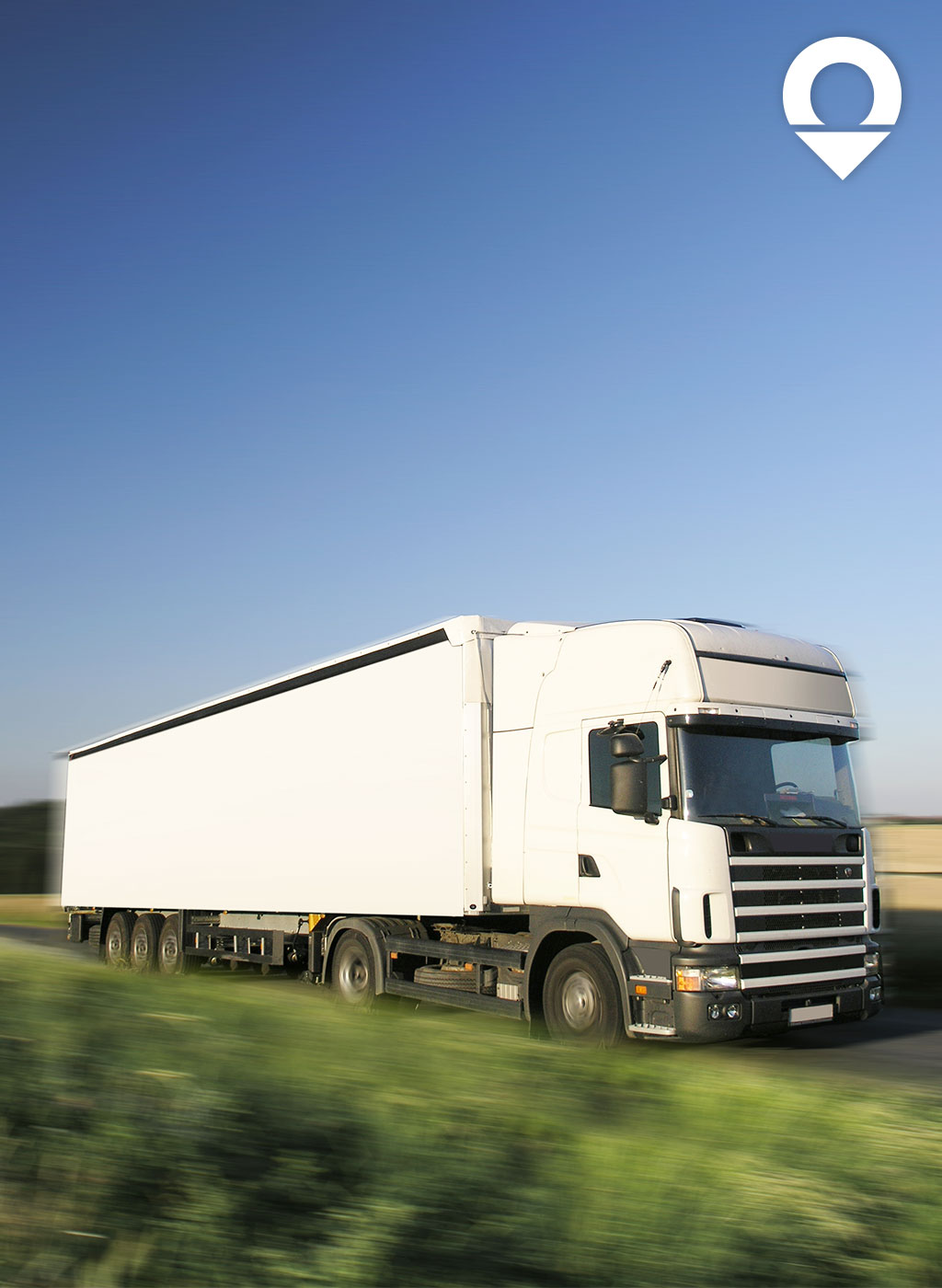This article aims to address the various issues and impacts of the capacity of operators to control the fuel consumption of trucks road transport . Then, to offer you alternative solutions to reduce it.

How to calculate the fuel consumption of a truck?
How to calculate your fuel consumption?
Heavy vehicle fleet managers know that fuel represents the second largest expense, making it a crucial aspect to monitor in your budget. To accurately assess the impact of this expense on your finances, it is essential to correctly calculate the fuel consumption of your diesel trucks. This involves taking into account several variables, such as the payload transported, and the gross vehicle weight (GVWR), the distance traveled of course, the average speed, and the climatic conditions. There is also the condition of the tires and the engine, the number of stops made during the trip, the nature of the vehicle, etc.
Although there are data recorders , also called on-board recorders, which collect information relating to vehicle performance, these systems also have limitations. They do not take into account certain factors which can influence consumption and which require a more precise estimate. For example :
- Fuel quality: Differences in quality between several types of fuel can affect a truck's fuel economy .
- Road conditions: slope, wind or traffic jams. These factors must be taken into account when calculating consumption .
- Driving habits: acceleration and braking are taken into account but not all behaviors such as lane changes, sudden deviations, etc.
So that carriers can correctly evaluate the consumption of a truck and thus determine the points necessary to optimize their energy performance, it is therefore always useful to use manual calculation methods :
- First, fill the tank to the maximum; once filled and before hitting the road, note the number of liters put in and the mileage of the truck (or reset it to zero).
- After driving until the truck is out of fuel, stop the vehicle and record the mileage. Subtract the previous number of kilometers from this to find the distance traveled.
- Carry out a simple operation: multiply the number of liters put in the tank by 100 then divide by the number of kilometers traveled.
- This gives you your average expenditure in liters per 100 km.
What autonomy for a diesel truck?
In France, it is estimated that a heavy goods vehicle consumes on average between 35 liters and 40 liters per 100 km. Although diesel is an increasingly criticized fuel, it nevertheless remains the most used engine in the road transport , particularly for its autonomy and the power that these engines are capable of deploying.
To get an overall idea of the autonomy of a diesel truck, here are some points of comparison:
For example, a 19-ton truck consumes on average 28 L/100 km, i.e. a range of approximately 1750 km for a tank with a capacity of 490 L.
For a 40 ton truck , it is estimated that it consumes around 34 L/100 km, i.e. a range of 1440 km for a 490 L tank. Finally, the consumption of a 20 m 3 truck with a tailgate is only of 9.5 L/100 km.
According to a recent report from the Economic Observatory of Road Goods Transport which was forgotten by the CNR , fuel represents a significant part of the total cost of a semi-trailer or a heavy goods vehicle: “up to at more than 40,000 euros for an average of 120,000 km per year. Taking into account the average consumption of this type of vehicle cited above, we are talking about “25%” of the total cost price of the vehicle for fuel expenses alone.
This observation is impressive and further justifies the need to take action to reduce fuel consumption . The latter also has a significant impact on the environment, particularly in terms of greenhouse gas emissions and air pollution.
In order to minimize this ecological impact while maintaining economic efficiency, it is important to look for ways to reduce truck fuel consumption.

What are the impacts of the fuel consumption of a heavy goods vehicle?
As in the automobile market, the road sector is not spared from the rise in energy prices. The impacts of fuel consumption are numerous and controlling it becomes an essential variable for optimizing the operating costs of a transport company. Calling on reliable manufacturers who optimize their engines and the structure of their vehicles to improve performance is a first step. Despite developments in this direction in recent years, the financial and environmental issues remain the same.
Financial issues for operators
Transport margins are decreasing, customers are more and more demanding and are demanding more and more advanced services for ever more competitive prices in an extremely competitive market. The financial stakes for a road carrier, whether independent or not, are significant. Truck consumption has a considerable impact on the budget of a carrier's company, but not only that. Shippers and customers who use this delivery method are also impacted.
Over the past few years, almost all cost items have increased and with the covid health crisis, logistics companies have had to redouble their efforts to keep up, ensure their services and maintain balanced management of their operations.
Finally, environmental awareness is stimulating the development of more ecological alternatives, which is slowly giving way to electric vehicles, which are less polluting and thus anchored in an ecological transition approach which aims to reduce greenhouse gas emissions. (GES) in the road sector . Simply adapting an entire fleet of vehicles by switching to electric is a huge investment cost and we may come to ask ourselves the following question: is the evolution towards electric efficient enough to respond to growing demand and effectively countering pollution on a global scale?
Environmental issues of heavy goods vehicle consumption
According to certain studies, and despite differing opinions on the issue, road transport remains one of the sectors that emits the most polluting gases. Transporters, large groups and independents, are therefore considered essential players in the important issues of preserving the environment and public health. The consumption of heavy goods vehicles goes further than the financial question andthe carbon footprint of a truck must become the subject of actions undertaken in a global effort to reduce polluting emissions.
Legislation is evolving, it would not be surprising to see taxes appear on the carbon footprint of each company. Shippers are therefore increasingly seeking to calculate their carbon footprints and reduce the environmental impact of their logistics activities, encouraging their service providers to follow them in this approach. Carriers, if they want to remain competitive, are therefore forced to implement actions to avoid losing market share to their competitors.
How to reduce your fuel consumption?
Generally speaking, to reduce the fuel consumption of their trucks, carriers have for several years adopted practices such as: optimizing routes, occupancy rates, training in economical driving, the use of alternative fuels, etc.
The consumption of road vehicles also depends on other factors:
First of all, any vehicle present in a carrier's fleet must receive regular maintenance to ensure its optimal operation. Parts, spark plugs, injectors, etc., once worn, increase consumption just like tires.
In addition to the maintenance of road vehicles, driving technique also modifies fuel consumption. Eco-driving will prioritize smooth driving at a constant speed without irregular acceleration or sudden braking, because aggressive and uneven driving is a source of increased fuel costs.
Finally, certain ranges of trucks are renowned as being more economical thanks to their more efficient engine performance. According to certain data from road transport experts, the most economical vehicles in this sector are those from the Mercedes brand.
Investment and involvement in all of these recommendations will inevitably have a significant impact. But if you want to act actively, simply and effectively on the fuel consumption of your trucks and reduce your polluting emissions, ECOLOW fuel saving accessory on the walk.
ECOLOW fuel saver module technology.
The ECOLOW fuel saver box is an innovative and reliable solution, 100% made in France, which helps limit energy costs and polluting emissions from road transport. This is a device placed at the level of the supply hose, which without impacting or modifying the original motor components, has the capacity to modify the molecular nature of the fuel as well as its calorific value to optimize combustion. .
On average, the ECOLOW module reduces the energy expenditure of road vehicles by 5% to 7%*, depending on the models used and the driving techniques of the drivers. This technology therefore also makes it possible to reduce polluting emissions and Adblue consumption.
* It should be noted that on certain extreme cold type fuels (GNR) the result is reduced or even canceled.
Simple to install, the module does not require any mechanical changes which would impact your manufacturer's warranty, the ECOLOW economizer box is compatible with all types of engines and fuels, making it a universal and interchangeable product to be adopted urgently in the road transport sector!

